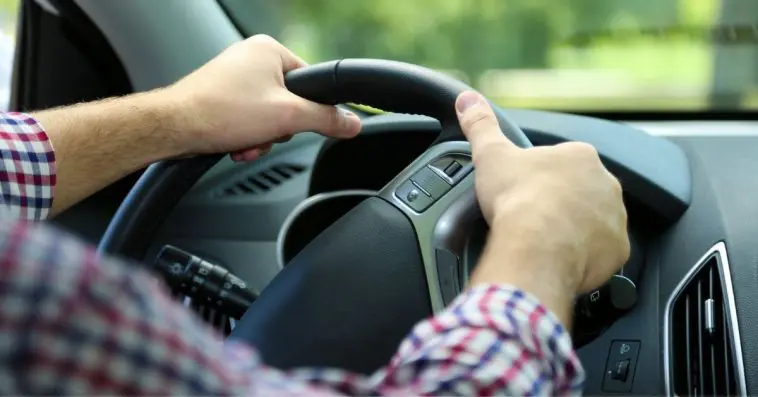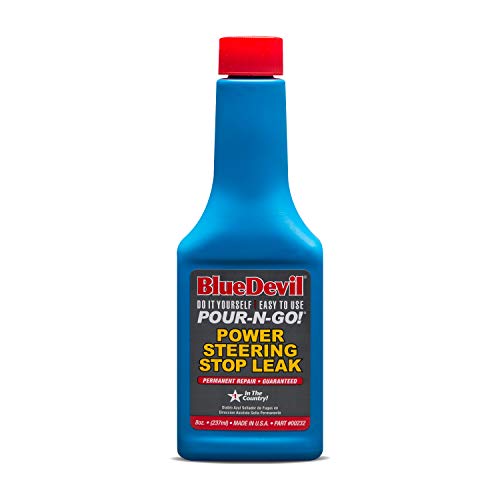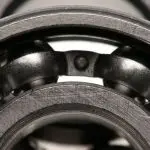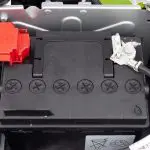Just imagine: You are ready for work, start your car and roll out of the driveway when you hear a squealing noise as you turn.
Unfortunately, noises from a vehicle are always a sign of something big; On the other hand, the good news is that you are not the only one, and car squeaks when turning is a pretty common issue that happens due to a handful of factors.
But whatever the reason may be, you need to get it to a mechanic as soon as possible to avoid further issues down the line.
There are several reasons, and quite a few parts come into play if you hear a squealing sound from your car as you turn the steering wheel.
In most cases, they are relatively minor and require a simple fix. Here are the various common causes, all of which need a mechanic’s intervention:
- Low Power Steering Fluid
- Less Lubrication In The Suspension
- Power Steering Failure
- Dirty Power Steering Fluid
- Worn Out Steering Wheel Belt
- Faulty CV Joint
- Weak Ball Joint
- Loose Trims
- Steering Column Collapse
Of all listed above, while the low power steering fluid is the most common issue, it is sometimes due to less lubrication in suspension.
If you notice in both these cases, the lack of lubrication is the reason for the squeal. Since you run the risk of overheating, you cannot postpone the visit to a service center or a mechanic.
TABLE OF CONTENTS
9 Reasons Why My Car Squeaks
1. Low Power Steering Fluid
For a smooth ride and for the steering wheel to turn smoothly, you need well-lubricated power steering.
If the fluid is insufficient, then the turning becomes difficult and cannot lubricate the steering system. The moving components then rub against each other and can be the cause of the squealing sound.
The fluid deficit may be the easiest and the most common issue of them all. You might as well first cross this out yourself by checking the liquid level in the reservoir.
It is accessible via the hood and is located on the passenger side of the vehicle (mostly). Open the reservoir cap and use a dipstick to check the levels.
If the levels are too low, top it up and get your vehicle on the road. The noise should have stopped if the low fluid level is indeed the issue.
You might also want to check the condition of the existing fluid. Steering fluid should be red or darker in color but clear.
In case it is black or brown, the issue might be the contaminated fluid, and you would have to flush the system.
The steering system is dependent on hydraulic pressure, which means that you need to maintain a proper level of fluid.
If the levels are lesser than ideal, then the lack of lubrication causes the steering to be less reactive and make squealing sounds.
Leaking Fluid
It would be best if you also kept an eye out for leaks, as it might also be the reason for low fluid levels. Based on the vehicle you drive, leaks can happen in three places.
- Steering pump
- Hose (carries the fluid from the pump to gear)
- Steering gear
The seals in the steering system are not easily accessible, and hence the entire system needs to be replaced, which can be expensive.
An easy alternative is to use the PournGo products to stop the leak in the seals.
2. Less Lubrication In The Suspension
Suspension helps absorb the shocks delivered to the system due to poor driving conditions like potholes and bumps. This results in a safe and smooth ride that you enjoy today.
Any moving part of a vehicle such as suspension, ball joints, seals, steering wheels, tie-ends, and universal joints needs proper lubrication to function as intended.
Insufficient or an absence of lubrication causes them to dry out, and hence they rub against each other, creating friction, which subsequently results in squealing sounds.
In the case of suspension, your car squeaks when driving and not just during a turn.
While it may not cause any issues right now, it can lead to vibrations which damage the other components in your car.
A suspension is usually made of two metal components and also a rubber component. Coating them with grease should take care of the noise problem.
If the noise doesn’t stop after the lubrication, the suspension might be worn out, in which case, you need to approach a mechanic.
3. Dirty Power Steering Fluid
Dirty and contaminated steering fluid can also be the cause of squealing noise from your car.
As the oil circulates in the steering system, it collects the dust, dirt, grime, and also the metal shavings that might hinder it in any way.
Also, it undergoes heat, chemical, and frictional degradation.
As a result of all these, the fluid can become darker in color and have a sludgy texture. This consequently affects the responsiveness and also causes the steering system to squeal.
It might jeopardize the performance of the system and even cause untold damage.
The only solution is to flush out the old contaminated fluid and to refill with new fluid.
When you flush the system, it removes the sludge and the remnants of all the contaminants, including metal shavings, varnish, etc.
As per expert recommendation, you have to change the power steering fluid every 30,000 miles to avoid steering system related issues.
4. Worn Out Steering Wheel Belt
If you can hear a squeaking noise when turning at low speeds, particularly in older cars, it may be due to a worn-out belt or even a loose one in the steering system.
The belt is what drives the system using the hydraulic pressure generated by the pump. When the belt slips, it affects the pressure creating the typical squealing noise.
If the noise continues, the belt can give away continuously, unable to handle the pressure and snap.
When this happens, you may find the steering wheel heavy and not responsive to your commands. This makes driving the road very difficult and prone to accidents.
The only fix is to replace the steering wheel belt, which you can get done at a mechanic or an auto service center.
5. Power Steering Failure
If none of the above works for you, the chances are that you are facing a power system failure.
With the system falling, you might notice that the car squeaks when turning right only. Another indication is when you find it particularly difficult to turn even at low speed.
The power steering system comprises the steering gear, hoses, and pump.
It is important to note here that the hoses connect the other components while the steering gear is connected to the wheels.
Noises in any of these components mean that they are either worn out or is faulty. Replacing them should get rid of the issue.
6. Faulty CV Joint
A CV Joint or a Constant Velocity Joint can take a lot before it wears out.
According to experts, it can be more than 100,000 miles before it gives out. A damaged CV joint can make a squeaking noise when turning at low speeds.
You may not notice the sound at first since they are almost silent when you are driving straight.
As I said earlier, the joint itself can take a lot, but that doesn’t mean that you have to let it go until it breaks down.
A point to note here is that the joint’s wear pattern allows for an excess movement, and when it cracks, it can run dry, creating noise and leading to failure.
Again, the severity of the noise depicts the magnitude of the issue, in which case, even driving can be dangerous.
7. Weak Ball Joint
Depending on the vehicle, your suspension system may have up to 4 ball joints. They link the steering spindles to the connecting arms and are subjected to friction every so often.
And at one point, they are worn out enough to cause squealing noises, especially when you pull to the left or right.
Your ball joints should be in proper condition and lubricated if you’d like your ride to be smooth and noise-free.
While it may seem like the joints are just noisy, they are the start of the problem, and the intensity of the noise indicates the severity of the damage.
With older cars, your mechanic should be able to access the ball joints for repair. But in the case of newer model cars, you might have to replace the ball joints.
Whatever it is, you can prevent the suspension from failing as long as you get to them early.
8. Loose Trims
While loose trims might be more superficial and irritating, you might want to eliminate these before going for the obvious.
If your car squeaks when turning left and braking, it may be your exterior or interior trims rubbing against each other or even the steering wheel housing.
The above stays true, especially for newer cars.
Locating the source of the noise can be difficult; try pressing on the door panels, windows, handles, and interior trims until you lose the sound.
As for exterior trims, remove it altogether or use a powerful adhesive to stick it together.
The squealing noise may also be due to the steering wheel housing rubbing on the trims. You can see this issue in models where inferior materials were used in construction.
The noise increases in the hot weather when the parts expand, causing them to scrape against the interior trim.
In the case of a new car, you might want to wait until the sound goes off on its own. Or you also opt to adjust the steering position if that helps.
Your mechanic can also help you if the noise is unbearable.
9. Steering Column Collapse
There is a reason why I mentioned this towards the end. A steering system doesn’t often fail, but that doesn’t mean it won’t happen at all.
It can, and when it happens, you can hear a squealing sound when the car goes over the bumps and especially when it turns. You can also feel it through the vibrations in the steering wheel.
The squealing noise may be due to:
- Inexpensive housing
- Lack of lubrication
- Steering column rubbing on the dust cover
- Curved steering column
Again, in this case, the severity of the noise depicts the damage, and you can get away with a repair or have to replace the steering column.
FAQs
Q1. How Do I Stop My Suspension From Squeaking?
As a temporary solution, you can use a spray-on lithium grease to lubricate any metal part that could be brushing against each other.
In the case of rubber components, silicon spray is the better option. While this reduces the noise, you might want to repair or replace the suspension for a safer drive.
Q2. Is A Squeaky Steering Wheel Dangerous?
A squeaking steering wheel can be due to the lack of lubrication, so topping up the fluid solves the issue.
But it might also be dangerous if the problem is with the tie rod or rack damage, or even a weak strut. You might lose control of your steering wheel, or it might not turn on demand.
Both of these cases can cause deadly accidents.
Q3. How Much Does It Cost To Fix Power Steering?
The power steering isn’t cheap to replace. So, if you can get by repairing it, that might be the budget-friendly option. But when it comes to replacing, here is the cost of the essential parts of the steering assembly.
- Pump: $400-$800
- Hose: $180 – $460
- Rack and pinion: $500 – $1,000
Conclusion
Any noise you hear from your car is the start of trouble in the car.
Ensure that you identify the source and repair it as soon as possible else, you are looking for a big-budget that is most probably above your means.
As with everything, general wear and tear can affect your power steering. Anything from low fluid to leaks, or failing joints, and even power steering failure can happen.
It is up to you to take notice of it and get it checked with your mechanic.





